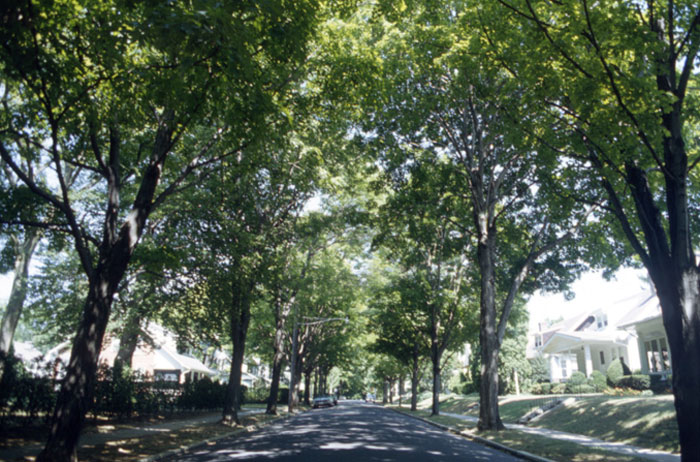We need to eliminate this ...
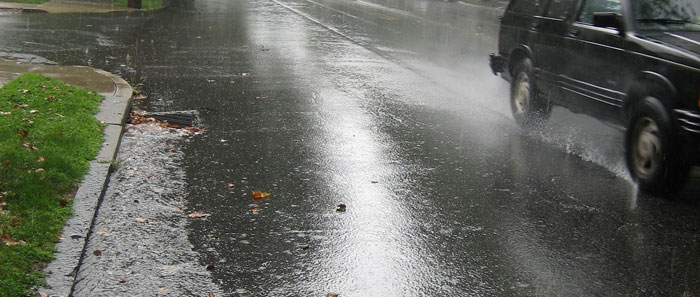
Most developed area have an abundance of impervious surfaces.When it rains, the water flows from rooftops and across the pavement to grates connected to a pipe which carries it away to the nearest stream or river.
... followed by this ...
If there is too much storm water, the pipe system can be overwhelmed, leading to back ups. Even if the pipe system works, too much rainfall can overwhelm streams and rivers, leading to flooding.
... and replace it with this:
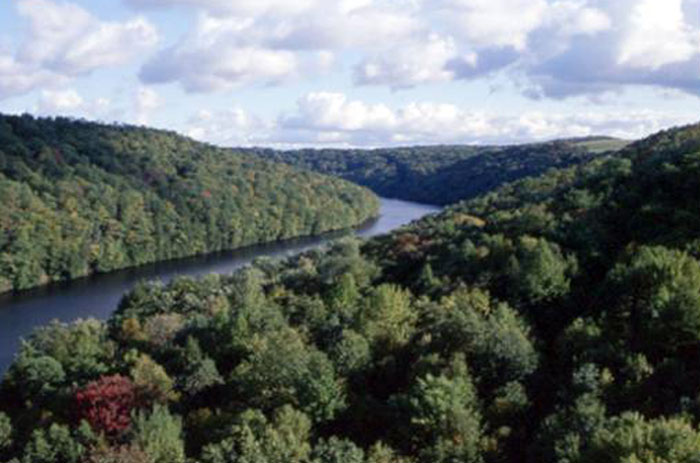
There's no runoff in forests
Forests, farms, and other open space absorb rain water during storms, allowing it to percolate deep into the ground.
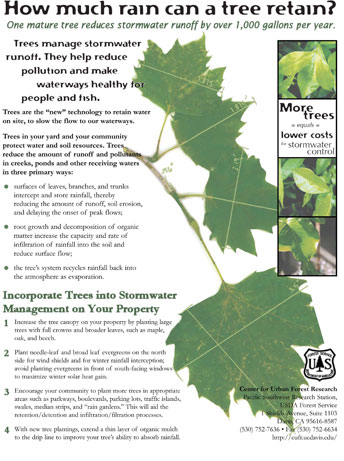
Trees absorb rainwater
Trees -- especially large canopy trees -- can absorb an enormous amount of rainwater and hold it on their leaves, allowing it to trickle slowly into the ground over time. The canopy of big trees can cover streets and rooftops, even in densely developed areas like traditional towns. One large canopy tree can absorb 1,000 gallons of rainwater over the course of an average year. And trees planted along streams and rivers can prevent rainwater, soil, and pollutants from being washed into waterways.
Shade trees can absorb storm water before it hits the streets
In cities and towns, street trees.can absorb stormwater and prevent it from overloading storm sewer systems. The larger the tree, the more water it absorbs, and the more environmental benefit it provides.
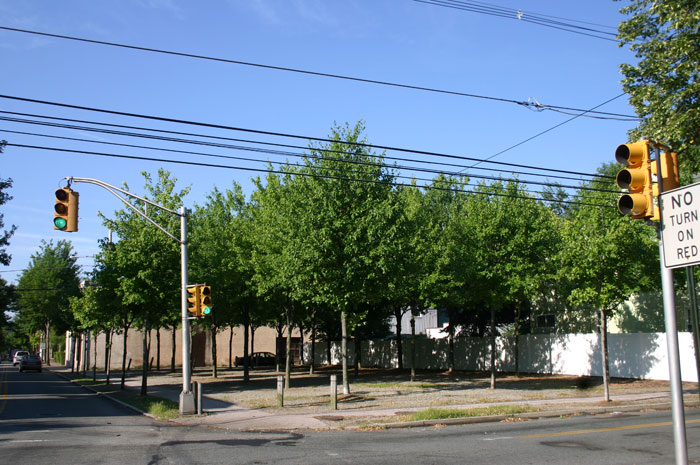
Urban parks can also serve as storm water retention areas
This passive park, an island of green in a densely populated neighborhood, can serve as a stormwater retention area.

Gas station demolished...
This old gas station was demolished, leaving a vacant quarter-acre lot.
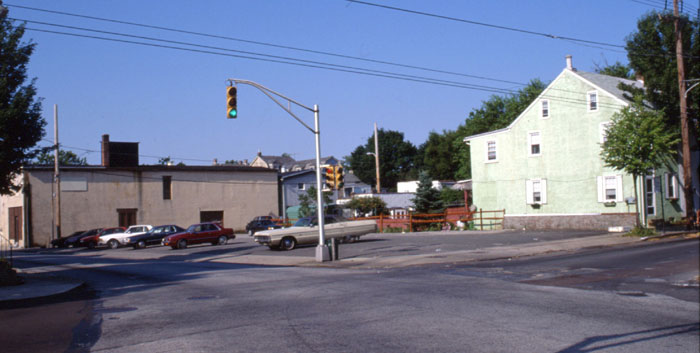
... and the cleared lot becomes a park
The asphalt was ripped up and replaced with two feet of clean topsoil.
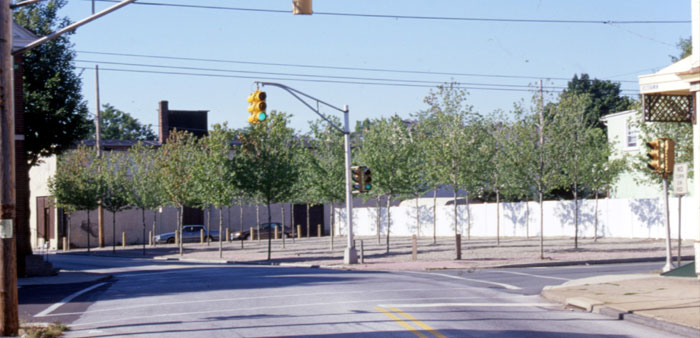
Trees provide green in the spring and summer ...
Thirty-five red maples trees were planted in rows in crushed stone.
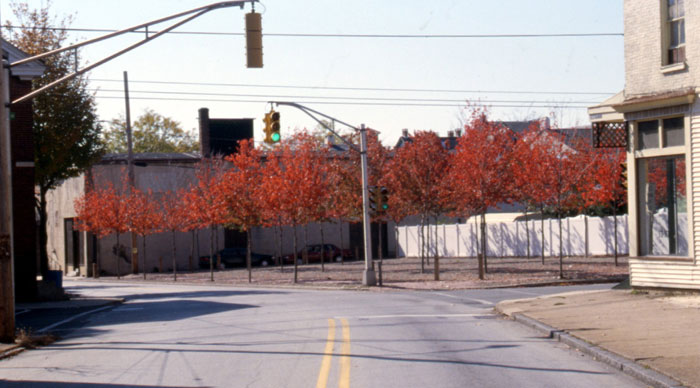
... and fall color
The trees provide fall color.
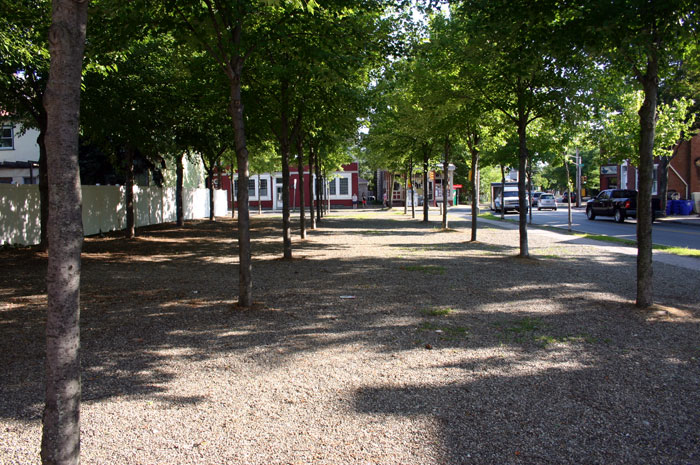
... and absorb storm water all year round
The park absorbs thousands of gallons of storm water all year round. Even when the leaves have fallen, the crushed stone and roots below absorb storm water.


